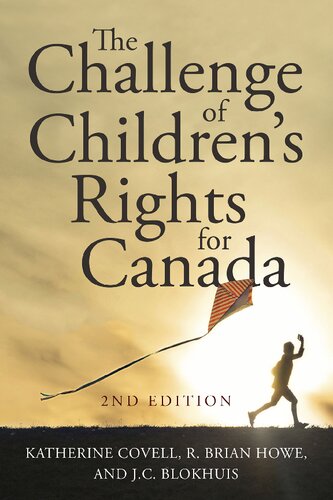

Most ebook files are in PDF format, so you can easily read them using various software such as Foxit Reader or directly on the Google Chrome browser.
Some ebook files are released by publishers in other formats such as .awz, .mobi, .epub, .fb2, etc. You may need to install specific software to read these formats on mobile/PC, such as Calibre.
Please read the tutorial at this link. https://ebooknice.com/page/post?id=faq
We offer FREE conversion to the popular formats you request; however, this may take some time. Therefore, right after payment, please email us, and we will try to provide the service as quickly as possible.
For some exceptional file formats or broken links (if any), please refrain from opening any disputes. Instead, email us first, and we will try to assist within a maximum of 6 hours.
EbookNice Team

Status:
Available4.6
19 reviewsMore than a quarter of a century has passed since Canada promised to recognize and respect the rights of children under the United Nations Convention on the Rights of the Child. Ratification of the Convention cannot, however, guarantee that everyone will abandon proprietary notions about children, or that all children will be free to enjoy the substance of their rights in every social and institutional context in which they find themselves, including―and perhaps especially―within families. This disconnect remains one of the most important challenges to the recognition of children’s rights in Canada.
The authors argue that social toxins are as harmful to children’s independent welfare and developmental interests as environmental toxins, and that both must be eradicated if Canada is to fulfill its commitments under the Convention. They also argue that if Canada wishes to ensure the substance of the rights outlined in the Convention are socially guaranteed, an attitudinal or cultural shift is required concerning the moral and legal status of children.
This revised, expanded, and updated edition of the bestselling Challenge of Children’s Rights for Canada will be of interest to academics, policymakers, parents, teachers, social workers, and human service professionals―indeed to anyone who cares about and for children.